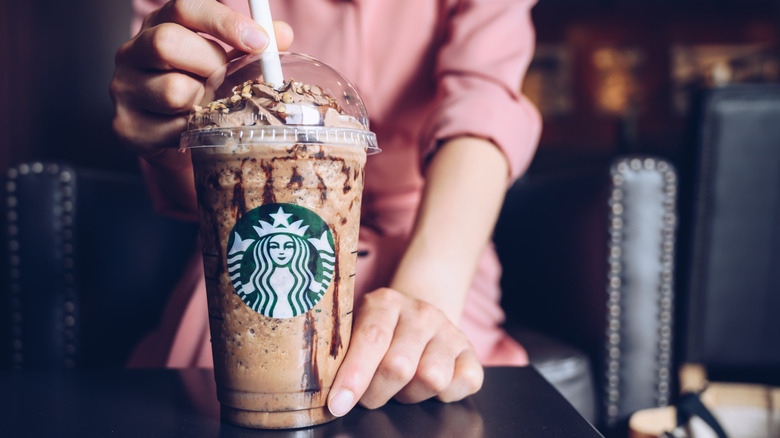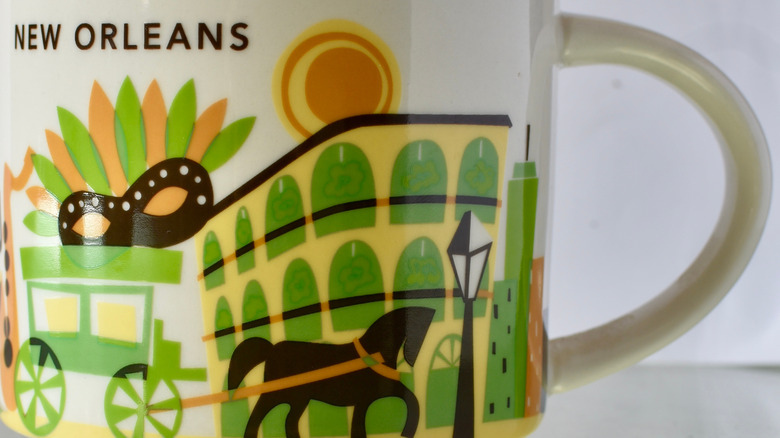The Unsettling Reason A New Orleans Starbucks Had To Shut Its Doors
With a new incoming CEO and ongoing employee unionization efforts, Starbucks has managed to stay at the forefront of relevant happenings in America. But a different company trend is gaining steam, one that's troubling on multiple levels: the closure of stores in major cities, primarily in downtown urban centers.
Starbucks announced in July that it would be shuttering at least 16 stores, including 14 West Coast locations in the Seattle, Los Angeles, and Portland metro areas, per AP News. The East Coast stands to lose stores in Washington, D.C., and Philadelphia. Now, with the imminent closure of a once-touted Starbucks venue in downtown New Orleans, it appears the closures will be more widespread. Outgoing Starbucks CEO Howard Schultz revealed that there would in fact be "many more," reports Business Insider.
A common thread weaves through the Starbucks story in each of these cities, and the unsettling reason goes well beyond simple economics. The stores instead reflect troubling neighborhood statistics, leading to designations of "high incident" locations.
Safety and Security
The flagship Starbucks coffee shop on Canal Street drew personal attention from Schultz during the company's New Orleans expansion in 2013. According to NOLA, the building's historic features received careful preservation, creating a "curated apothecary"-style ambiance with commissioned art, integrated antiques, and a wooden community table made from repurposed fallen trees. Just nine years later, the store, one of Starbucks' most unique locations, sits largely deserted after receiving its death-knell designation as a "high incident" location. In a nutshell, that means it will permanently close on October 2 due to concerns over safety and security.
Starbucks acknowledged in July that threats to employees were rising in some areas, stating intentions to either resolve the ongoing problems or shut down affected stores. The nationwide review of U.S. Starbucks venues revealed that the once-darling Canal Street coffee shop at the intersection of St Charles Avenue had higher-than-average numbers of crime and "incident" logs that put employees and customers in danger. Starbucks spokesperson Sam Jeffries explained that growing national challenges play out within Starbucks communities and stores every day, including mental health dilemmas, racism, and COVID-related exacerbations, according to 4WWL television station in New Orleans. After consultation and brainstorming with community leaders and Canal Street store employees, the company announced that operations must cease.
In light of the growing nationwide push for unionization by Starbucks employees, which is opposed by the company, NOLA notes that the Canal Street store had not applied for union formation.

